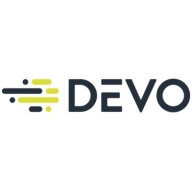

Devo and Microsoft Sentinel are competing products in the cybersecurity space. While user reviews favor Devo for pricing and support, Microsoft Sentinel is preferred for its comprehensive features.
Features: Devo is known for robust log management, advanced search capabilities, and strong data ingestion. Microsoft Sentinel offers extensive integrations, AI-driven threat detection, and detailed incident response.
Room for Improvement: Devo could benefit from enhanced alerting mechanisms, better scalability, and a more intuitive user interface. Microsoft Sentinel needs more intuitive configuration settings, reduced false positives, and improved documentation.
Ease of Deployment and Customer Service: Devo is noted for a smooth deployment process and responsive customer service. Microsoft Sentinel, while praised for customer service, requires a more complex deployment. Users find Devo easier to deploy but equally value Microsoft Sentinel's support.
Pricing and ROI: Devo's setup cost is considered reasonable, with users reporting a high ROI due to efficient log management. Despite its higher cost, Microsoft Sentinel is seen as offering better value through advanced threat detection capabilities, justifying its expense with comprehensive features.


Devo is the only cloud-native logging and security analytics platform that releases the full potential of all your data to empower bold, confident action when it matters most. Only the Devo platform delivers the powerful combination of real-time visibility, high-performance analytics, scalability, multitenancy, and low TCO crucial for monitoring and securing business operations as enterprises accelerate their shift to the cloud.
Microsoft Sentinel is a scalable, cloud-native, security information event management (SIEM) and security orchestration automated response (SOAR) solution that lets you see and stop threats before they cause harm. Microsoft Sentinel delivers intelligent security analytics and threat intelligence across the enterprise, providing a single solution for alert detection, threat visibility, proactive hunting, and threat response. Eliminate security infrastructure setup and maintenance, and elastically scale to meet your security needs—while reducing IT costs. With Microsoft Sentinel, you can:
- Collect data at cloud scale—across all users, devices, applications, and infrastructure, both on-premises and in multiple clouds
- Detect previously uncovered threats and minimize false positives using analytics and unparalleled threat intelligence from Microsoft
- Investigate threats with AI and hunt suspicious activities at scale, tapping into decades of cybersecurity work at Microsoft
- Respond to incidents rapidly with built-in orchestration and automation of common tasks
To learn more about our solution, ask questions, and share feedback, join our Microsoft Security, Compliance and Identity Community.
We monitor all Security Information and Event Management (SIEM) reviews to prevent fraudulent reviews and keep review quality high. We do not post reviews by company employees or direct competitors. We validate each review for authenticity via cross-reference with LinkedIn, and personal follow-up with the reviewer when necessary.